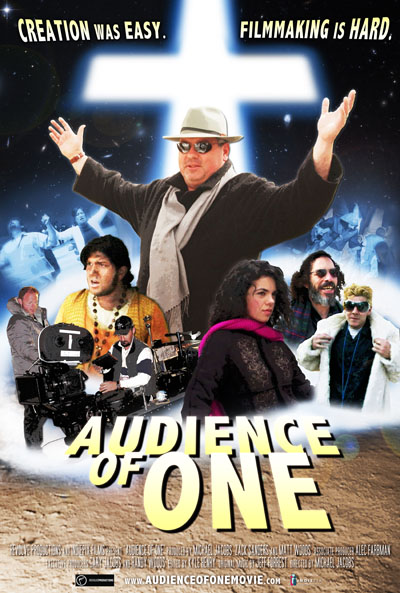Frank Schaeffer's contribution to the discussion about political responsibility in the US is significant: a former religious right leader acknowledging his part in the blame for creating the sparks that too easily turn into wildfires:
"The reason this issue will never go away is that the Roe ruling was an over broad court decision that makes abortion legal even in the last weeks of pregnancy. Take away the pictures of all those dead late term fetuses and everything changes emotionally. Democracy and civil debate is messy but if abortion had been argued state-by-state abortion would be legal in almost all our states today and probably the laws would be written more like those of Europe, where late-term abortions (of the kind Dr. Tiller specialized in performing) are illegal and/or highly discouraged.
The same hate machine I was part of is still attacking all abortionists as "murderers." And today once again the "pro-life" leaders are busy ducking their personal responsibility for people acting on their words. The people who stir up the fringe never take responsibility. But I'd like to say on this day after a man was murdered in cold blood for preforming abortions that I -- and the people I worked with in the religious right, the Republican Party, the pro-life movement and the Roman Catholic Church, all contributed to this killing by our foolish and incendiary words.
I am very sorry."
At the same time, Keith Olbermann and Rachel Maddow's attempt to shock those who might feel something approaching ambivalence regarding Dr Tiller's murder, by portraying it as 'domestic terrorism', while understandable, comes close to mirroring the belligerence of those they are trying to denounce (O'Reilly, Limbaugh, etc.). The use of terror terminology has a murky history. I've written before that, for me, growing up in a society where the word 'terrorist' was bandied about as if it were as ubiquitous as sugar in tea, it served only to delay the inevitable: a process where we talked to, instead of killing each other. Use the word 'terrorist' of an enemy and you make it much harder for political representatives to negotiate a less violent outcome.
So, because these things are more complicated than the tax code, let me say this, with apologies for not being able to find a way today to keep it brief:
1: The word 'murder' has become devalued. So has the word 'terrorist'. We need to be more careful when we use them. Murder is far more serious than our popular culture allows - you only have to look at how the Phil Spector trial, which centered on the fact that the record producer regularly threatened women with guns, and then eventually destroyed a life by shooting a woman in the mouth, had its moral seriousness reduced by calling it a 'circus', where Spector's hairstyle received as much air time as his victim. What was her name again?
2: It is appropriate to use 'terror' language to refer to any act part of whose purpose or consequence is to create terror, no matter who carries it out. In that light, the attacks on 9/11 and the murder of Dr Tiller both can be called acts of terrorism. But so is the bombing of Hiroshima by the Allied Forces. And the interning of civilians without trial by the British state in Northern Ireland in the 1970s. And the blowing up of bus stations or the targeting of police officers and soldiers by the IRA. And any other act part of whose purpose or consequence is to create terror. Whether or not you think this means that the word can be so broadly applied that it ceases to have any meaning, or that this definition may actually permit a more serious discussion of violence and how it is used (by non-state groups who call it 'freedom fighting', and by the state which calls it 'justice') is extremely important.
3: In this light, calling the murder of abortion providers 'terrorism' may be accurate, if only to shock those who feel ambivalence toward it into realising just what it is they are not condemning strongly enough. But it may also have the effect of driving an even deeper wedge between groups of human beings who, if the rhetoric employed by their public representatives is to be believed, already hate each other.
4: However, using the word 'terrorist' as a noun to describe the totality of a person is not helpful, for the reasons I mentioned above: ultimately, violent conflicts are solved only either through negotiation or the total destruction or disempowerment of one party and its supporters. You can disagree with this statement if you like, but I doubt that you will be able to give me a example that disproves it.
It would be better to talk in general about terrorism, and specifically about abortion, and the murder of Dr Tiller, in the way Frank Schaeffer does. There are things we can agree on in this context: that it would be better to have fewer abortions is perhaps chief among them. People who are so angered by a political or moral matter that they want to kill its protagonists will not be calmed down by being vehemently denounced. The person who killed Dr Tiller may well feed their rage on the kind of language being used by Olbermann and Maddow (two journalists whom I greatly respect, and am merely disagreeing with on this occasion - their talent for serious engagement with the issues, does, I hope, allow for such disagreement to occur without disparagement). Let's have a conversation about what is really happening here:
An ancient myth is being played out: you kill me, I kill you, neither of us really knows why. We inhabit a culture where violence is taken for granted. It's on the air so much it feels like it's in it. Acts of violence occur at the end of a continuum that begins with how we talk about being human. Moral denunciations, even when focused on people who do awful things, need to be handled with care. Bill O'Reilly isn't going to change if only enough liberals would shout at him. People aren't going to stop killing people they disagree with if only our culture could isolate them further than they already are.
I have strong feelings about the Limbaughs and O'Reillys out there; sometimes it's difficult not to feel something approaching hatred for what I see as their insidious impact on the world; how they seem to start fires, and then run away. But that's not going to get us anywhere; in fact, it may only serve to fuel their rage, although I don't imagine they're listening to me.
It would be far better to start with something we can immediately do something about: how we talk about what it means to be human, the reality of the fact that we are already prepared to accept certain forms of 'legalised terrorism' from the state, and, most of all, whether or not we are able to take the same kind of share in responsibility as Frank Schaeffer for the cultures we are nurturing.
 We've all had times when we knew, or thought we knew what we were doing was doomed to fail. And we kept going. Maybe we look back on these occasions as learning experiences, maybe they're embarrassing, maybe we ended up proving our pessimism wrong and actually won when it seemed that the likelihood of success was on a par with de Niro's hopes of getting to his island retirement at the end of 'Heat'.
We've all had times when we knew, or thought we knew what we were doing was doomed to fail. And we kept going. Maybe we look back on these occasions as learning experiences, maybe they're embarrassing, maybe we ended up proving our pessimism wrong and actually won when it seemed that the likelihood of success was on a par with de Niro's hopes of getting to his island retirement at the end of 'Heat'.
 Now that I've seen 'Terminator: Salvation', some queries occur to me:
Now that I've seen 'Terminator: Salvation', some queries occur to me: Once upon a time, as a graduate student. I spent three years studying people who believe the pope is the antichrist, a mythical figure referenced (with surprising infrequence) in the Bible, and who over the centuries has inspired some of the strangest speculation and religious behaviour. From the 12th Century mystic Joachim of Fiore who changed the date for the end of the world as often as his undershirt, through the fact that Isaac Newton believed that his discovery of logarithms would speed up the calculation of what the Number of the Beast meant, to apocalytpic frenzy at the time of the French Revolution, right up to more recent doomsayers such as Hal Lindsey (the bestselling ‘non’-fiction author of the 1970s), who may have felt rather conflicted when 1988 came and went without the earth being destroyed, and now
Once upon a time, as a graduate student. I spent three years studying people who believe the pope is the antichrist, a mythical figure referenced (with surprising infrequence) in the Bible, and who over the centuries has inspired some of the strangest speculation and religious behaviour. From the 12th Century mystic Joachim of Fiore who changed the date for the end of the world as often as his undershirt, through the fact that Isaac Newton believed that his discovery of logarithms would speed up the calculation of what the Number of the Beast meant, to apocalytpic frenzy at the time of the French Revolution, right up to more recent doomsayers such as Hal Lindsey (the bestselling ‘non’-fiction author of the 1970s), who may have felt rather conflicted when 1988 came and went without the earth being destroyed, and now